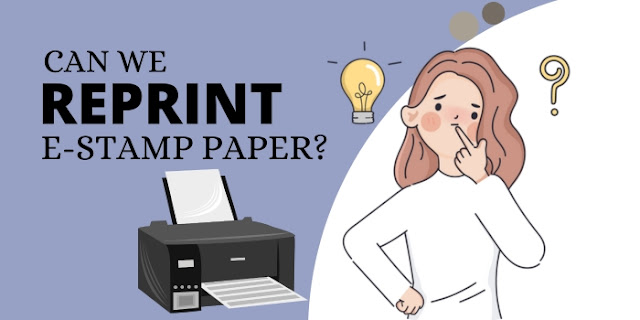Can We Use Stamp Paper Of Different State?
Stamp paper is a legal instrument used to establish the authenticity of a transaction or agreement. It plays a vital role in several legal and financial processes, including property transactions, leases, and affidavits. However, a common question that arises is whether you can use stamp paper from a different state for your documents. In this comprehensive guide, we will explore the nuances of using stamp paper from different states and how it impacts the legality of your documents.
Understanding Stamp Paper
Before delving into the interplay of using stamp paper from different states, it's important to understand the basics of stamp paper:
Stamp Duty: Stamp duty is a tax levied by the state government on various instruments, including agreements, deeds, and other legal documents. The duty is usually determined based on the value of the transaction and the type of document.
Stamp Paper: Stamp paper is a physical or electronic document that represents payment of the stamp duty for a specific transaction. The stamp paper is embossed with a government seal and is a legal commitment to the transaction mentioned on it.
Now, let's address the main question:
Can You Use Stamp Paper of Different States?
In most cases, it is not advisable to use stamp paper from a different state. Stamp paper is governed by state laws, and each state in India has its own rules and regulations regarding stamp duty. Using stamp paper from a different state can lead to complications and legal issues. Here's why:
Jurisdiction: Stamp duty is a state subject, which means each state has the authority to frame its own rules and rates for stamp duty. When you use stamp paper from a different state, it may not be legally valid in the state where your transaction or agreement is being executed.
Validity: Many states specify the validity period of their stamp papers. Using an expired stamp paper can render your document null and void.
Denomination: Different states may have different denominations of stamp paper. Using the wrong denomination can also lead to legal complications.
E-stamp vs. Physical Stamp Paper: Some states have transitioned to e-stamping, where stamp duty is paid electronically. Using physical stamp paper from a different state in an e-stamping state may not be permissible.
Exception to the Rule
There is an exception when it comes to using stamp paper from different states. Some agreements or documents have a pan-India applicability, and for such cases, you can use stamp paper from any state. These documents typically include:
Central Government Agreements: Agreements or documents that involve the central government or its agencies often have a pan-India applicability. In such cases, you can use stamp paper from any state.
Parties from Different States: If the parties involved in the transaction are from different states and agree to use stamp paper from a specific state, it can be considered valid.
Online Agreements: Some online platforms and government websites offer e-stamping services that can be used for pan-India agreements.
Best Practices for Using Stamp Paper
To avoid legal complications and ensure the validity of your documents, follow these best practices:
Check State Rules: Always check the stamp duty rates and rules of the state where the transaction is taking place.
Use the Correct Denomination: Ensure that you use the correct denomination of stamp paper as per the state's regulations.
E-stamping: Consider using e-stamping services if available in your state, as they are generally accepted across the country.
Consult Legal Experts: If you are uncertain about the stamp paper's validity or the legal aspects of your document, consult with a legal expert.
Keep Records: Maintain records of all stamp papers and documents for future reference.
Conclusion
In most cases, it is not advisable to use stamp paper from different states for your legal documents. State-specific stamp duty rules and regulations make it essential to use the appropriate stamp paper for transactions in a particular state. To avoid legal complications, consult with legal experts and follow the best practices mentioned in this guide. By doing so, you can ensure the legality and authenticity of your agreements and transactions.



